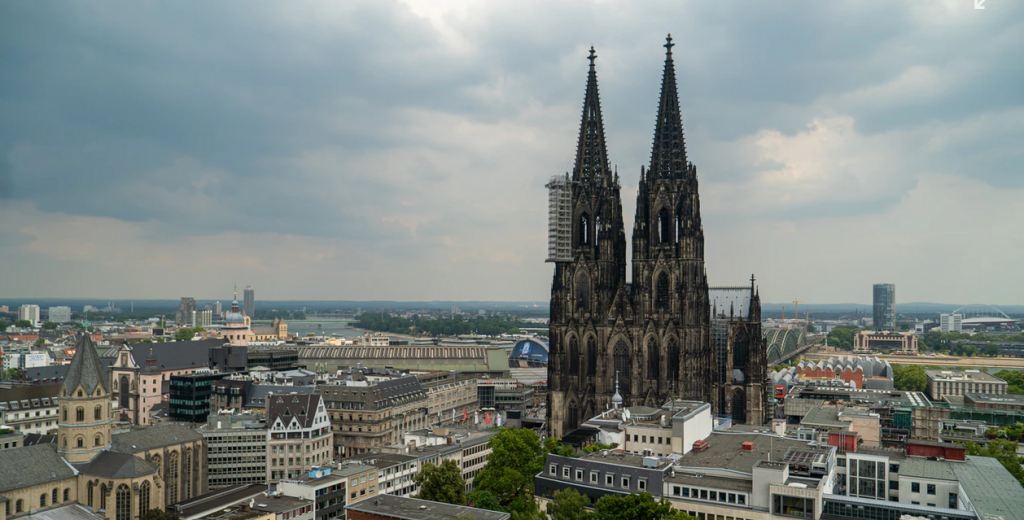
There is a very interesting episode of freakonomics on the protestant work ethic. In it, they claim that even today Protestants work longer hours than Catholics do. Germany doesn’t seem to be an especially religious country to me. While the majority is Christian on paper, hardly more then ten percent of people actually go to church regularly.
However: the protestant work ethic still seems to be real according to freakonomics:
SPENKUCH: I find three things. One: yes, Protestantism increases labor income in modern-day Germany. Two: Protestants work longer hours than Catholics. And three: they don’t earn higher wages. Meaning yes, Protestants are a little bit more prosperous but because they work more. […]
So what I do find in the data that when you ask people, “How many hours a week would you want to work, conditional on your income adjusting accordingly?” Protestants would want to work longer hours. But what drives these differences? Sort of if you dig a layer deeper, I don’t know.
Obviously, there could be a ton of confounding factors. People haven’t been randomly selected into Protestantism or Catholicism. Instead, Protestants and Catholics live clustered in certain areas and may differ in more aspects than just their religion. I haven’t read the paper in detail, so I’m just kind of relying on the authors being reasonably careful in their analysis. But let’s assume this is real.
I actually find it quite plausible that there were measurable differences between Protestants and Catholics in the past. After all, the protestant work ethic is a thing. The Church did have an immense influence on how people thought and led their lives. There are other examples than economics. Freakonomics also reminds us of role religion played during the 1930s in Germany:
SPENKUCH: The 10-second summary is that religion is the single-most important determinant of Nazi vote shares at the end of the Weimar Republic. Protestants at the time were two-to-four times as likely as equivalent Catholics to vote for the Nazi party. Now why was that? In the paper, we argued that that’s due to the Catholic Church’s influence over parishioners.
And even that may still be somewhat true today. A recent pre-print by Lukas Haffert (summary thread here) argues that we can also see the effect of religion on German politics until this day. Catholics in the regions that formerly belonged to Prussia are much less likely than Protestants to vote for the AfD, the German right wing party. He attributes this to the oppression Catholics have experienced in Prussia and the institutions and habits they have developed in defense. Here is the abstract:
Contemporary political behavior is often affected by historical legacies, but the specific mechanisms through which these legacies are transmitted are difficult to pin down. This paper argues that historical political conflicts can affect political behavior over several generations when they trigger an enduring organizational mobilization. It studies how the oppression of German Catholics in the 19th century led to a regionally differentiated mobilization of political Catholicism that still affects political support for the radical right Alternative für Deutschland (AfD) today. Using newly collected data on historical oppression events, it shows that Catholic regions where oppression was intense saw greater mobilization of Catholic lay organizations than Catholic regions where oppression was milder and show lower support for the AfD today. The paper thus contributes to the literature on the historical determinants of political behavior as well as to the question which regional context effects strengthen or weaken the radical right.
So even after the influence of the Church has rapidly decreased, it seems that some of the effects are still measurable today. I’m not sure I am strongly surprised, but I find it notable at the very least.
What to make of this?
First and foremost, I find topics like these interesting and enjoy reading about it them. But I’m a bit uncertain whether this should change the way I view the world.
If anything, it would lead me to update a bit on the importance of the past for the present future. A lot of things really seem to have an effect over the centuries. See for example my article on Family Wealth, Traced Centuries Back. The post gives some examples of how surprisingly many families maintain their social status (or lack thereof) over several hundred years. Seeing examples where the past notably influences the present should increase confidence that there are more examples out there which we just can’t measure.
On the other hand, it seems very easy to explain almost anything by gesturing at cultural reasons: “People voted right wing because of the culture”, “Some countries stay poor, because they don’t have a strong work ethic in their culture”. Should I also update my confidence in these kinds of arguments? A lot of this may be motivated reasoning. I’m willing to be convinced by data, but remain somewhat skeptical. If we accept that German Protestants work harder due to their Protestantism, do we have to give more prior probability to arguments that attribute welfare of a nation to the work ethic of its people?
I also feel that cultural arguments mentally takes away some agency from people to make their own free decisions. Maybe rightly so? Maybe we are very much a product of our environments and should think of each other as mostly a product of the past and present world around us.
